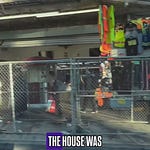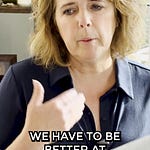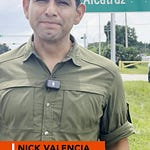In Miami, Catholics who once rallied behind Donald Trump are now wrestling with regret, ambivalence, and conscience. A nun torn between mercy and borders, a moderate urging humanity, and a Venezuelan immigrant who says he was wrong to vote for Trump — together, their voices reveal a community in quiet crisis.
MIAMI — Polivio Alvarado’s regret carries the weight of betrayal.
The Venezuelan-born devout Catholic has lived in the United States for nearly half a century. Like many in his community, he was especially angered by President Trump’s removal of TPS for Venezuelans. A status they had held for years.
“Everyone who voted for Trump around here is totally disillusioned, completely unhappy.”
Alvarado is one of them.
In 2016 and 2020, he voted for Trump, as did his wife. But in 2024, only she cast a ballot. By then, he had stepped back entirely, unwilling to participate at all.
“The Cubans, the Venezuelans,” he said. “How many gave their vote to Trump here? And for what?”
Like many in Miami, he believes Trump not only led them astray, but is actively squandering an opportunity.
“This president would have done well to grant an amnesty like the one granted by President Reagan,” Alvarado said. “He’d get more money. There wouldn’t be any more orphaned kids like they’ve been making.”
Between Mercy and Borders
Inside Miami’s Catholic community, Alvarado’s disillusionment is hardly an outlier. In parish halls and after Sunday Mass, conversations tilt toward anguish and contradiction.
Sister Elvira, a nun who has spent her life ministering to the poor, put it plainly: “It’s very sad that we should have to leave the country where we were born to find refuge in another country.”
She paused, then added something unexpected.
“It seems like he loves his country, President Trump. What he wants is to restore order in his country. But if he does it with love in his heart or not…,” she shrugs every so slightly. “Who am I to judge?”
Her words capture the paradox of this moment: a spiritual calling toward mercy, tempered by a recognition of borders and laws.
“I can’t open the door to everyone and let everyone come in,” she admitted. “I have to check that person coming in is going to help me and my family. If not, then unfortunately, you have to go home.”
Yet even in her ambivalence, the core remains a plea for compassion.
“In the name of God, what we have to search for is peace and unity,” she said. “But the whole world has to collaborate.”
The Middle Ground
The voices of South Florida’s Catholics are caught between doctrine and politics, law and mercy, disappointment and hope.
Ricardo Lopez, a leader in the Caballeros Católicos, framed it in broader terms.
“Human beings are human beings,” he told me. “We’re all from somewhere else. Borders were put here by other people. We know there are cultural differences, but the core of the essence of this country is the immigrant — the people who came here from England, and the Indians who were already here.”
When I asked what he would say to Trump if the former president were standing in front of him, Lopez’s answer was unflinching.
“That he should be more humane. He should think of his own family, of where he comes from, and where his wife comes from.”
On legality, Lopez pointed to a distinction often lost in political debate.
“Yes, we can say that they broke the law,” he said of undocumented immigrants. “But we also have many people on TPS permits, the canceled humanitarian permit. They didn’t break any laws.”
A Reckoning in the Pews
The voices of Miami’s Catholics don’t align neatly with red or blue. Instead, they reflect something more intimate: a moral reckoning, caught between doctrine and politics, law and mercy, disappointment and hope.
Alvarado’s regret, Sister Elvira’s ambivalence, Lopez’s call for humanity — together, they sketch the portrait of a community that once lent Trump its trust and now wonders what became of that promise.








